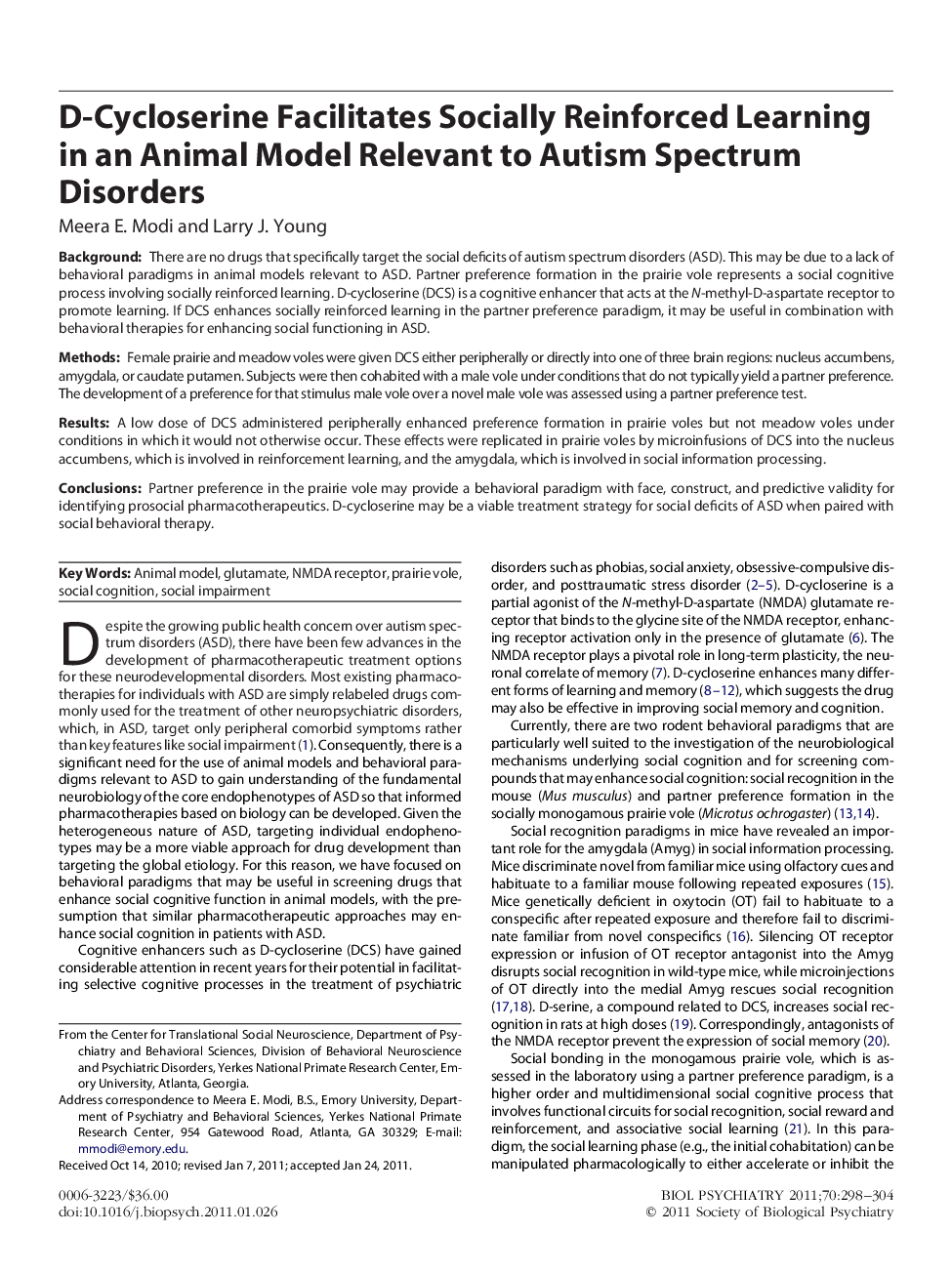| Article ID | Journal | Published Year | Pages | File Type |
|---|---|---|---|---|
| 6228151 | Biological Psychiatry | 2011 | 7 Pages |
BackgroundThere are no drugs that specifically target the social deficits of autism spectrum disorders (ASD). This may be due to a lack of behavioral paradigms in animal models relevant to ASD. Partner preference formation in the prairie vole represents a social cognitive process involving socially reinforced learning. D-cycloserine (DCS) is a cognitive enhancer that acts at the N-methyl-D-aspartate receptor to promote learning. If DCS enhances socially reinforced learning in the partner preference paradigm, it may be useful in combination with behavioral therapies for enhancing social functioning in ASD.MethodsFemale prairie and meadow voles were given DCS either peripherally or directly into one of three brain regions: nucleus accumbens, amygdala, or caudate putamen. Subjects were then cohabited with a male vole under conditions that do not typically yield a partner preference. The development of a preference for that stimulus male vole over a novel male vole was assessed using a partner preference test.ResultsA low dose of DCS administered peripherally enhanced preference formation in prairie voles but not meadow voles under conditions in which it would not otherwise occur. These effects were replicated in prairie voles by microinfusions of DCS into the nucleus accumbens, which is involved in reinforcement learning, and the amygdala, which is involved in social information processing.ConclusionsPartner preference in the prairie vole may provide a behavioral paradigm with face, construct, and predictive validity for identifying prosocial pharmacotherapeutics. D-cycloserine may be a viable treatment strategy for social deficits of ASD when paired with social behavioral therapy.
